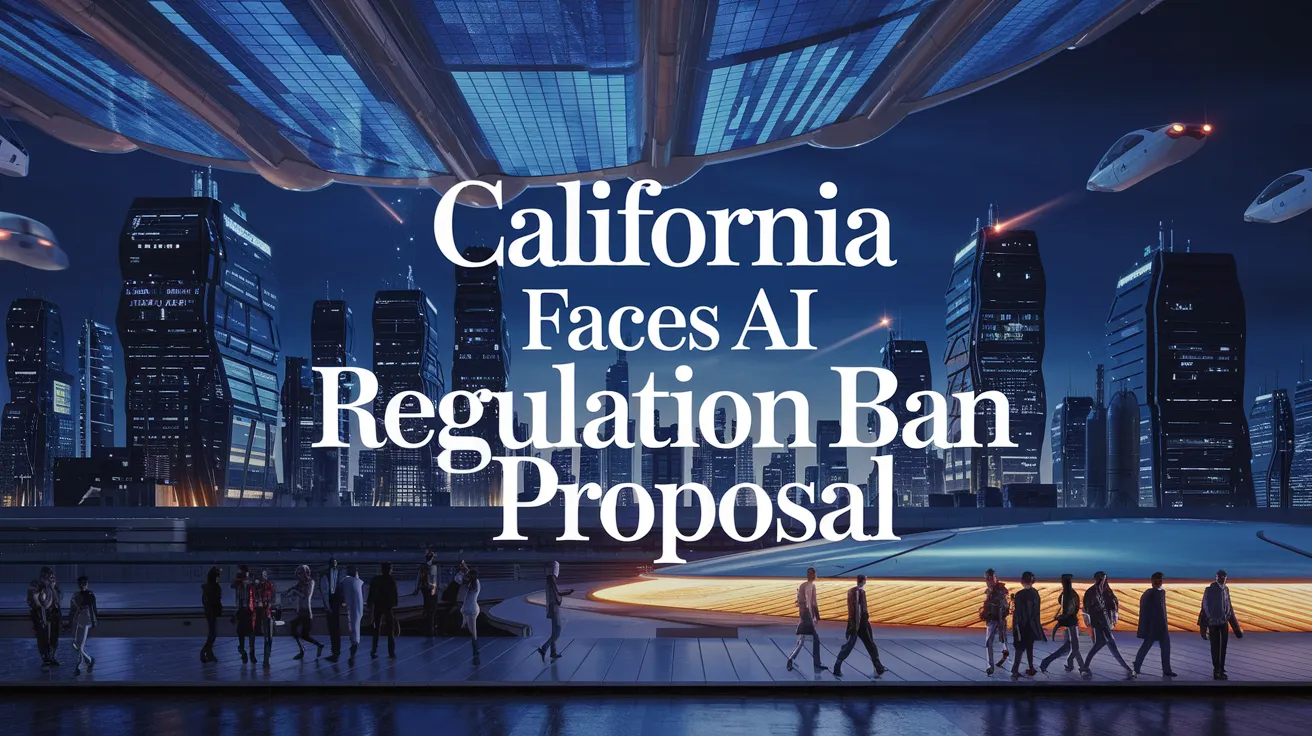California Faces AI Regulation Ban Proposal

In a significant move regarding the governance of artificial intelligence, House Republicans are pushing a bill in Congress that could severely limit state-level AI regulations. This legislation aims to impose a moratorium on the enforcement of over 20 laws passed by the California Legislature last year, as policymakers seek to curtail the growing influence of state regulations on AI technologies.
Legislative Overview
The proposed moratorium is part of a larger budget reconciliation bill, which, if passed, would obstruct California’s ongoing efforts to regulate AI. Currently, the California Legislature is considering approximately 30 bills aimed at overseeing AI applications, including those that mandate transparency for AI usage in healthcare and employment decisions.
This maneuver has provoked a strong backlash from leaders in California. The California Privacy Protection Agency has expressed concern that such a moratorium could eliminate essential rights for millions of Americans, diminishing transparency and privacy protections that voters had previously secured.
National Implications of the Ban
The moratorium’s effect could be felt nationwide, limiting legislative attempts across 45 states to regulate AI. According to the Transparency Coalition, lawmakers across these states are currently examining nearly 600 draft bills aimed at AI governance. In fact, California has been a frontrunner in this space, having passed more legislation related to AI than any other state since 2016, as reported by Stanford’s 2025 AI Index.
Congressman Brett Guthrie, a Republican supporting the proposal, argues that the inconsistency in state laws creates confusion and undermines innovation. However, critics, including state Senator Josh Becker, fear that the moratorium would hinder necessary protections that states like California have been diligently working to implement, particularly those targeting harmful AI uses like deepfakes.
The Uncertainty Ahead
There remains considerable uncertainty regarding the specifics of what the moratorium would encompass. Some lawmakers question whether it would invalidate privacy protections currently enjoyed by Californians or hinder legislation aimed at aiding individuals in controlling their personal information.
Despite the danger presented by the proposed moratorium, some observers predict the bill may struggle to pass through the Senate. A federal budget regulation, known as the Byrd Rule, could prevent it from being categorized as a budgetary matter, limiting its viability. Nonetheless, Gus Rossi, a public policy expert, warns that the initiative represents an ideological stance from House Republicans regarding the future of AI legislation.
States Taking Charge of AI Regulation
As states begin filling the regulatory void created by Congress’s inaction, many have taken steps to address concerns arising from AI technologies. For example, recent initiatives in states like Utah and New York aim to enhance the safety and ethical use of AI, particularly in sensitive areas like mental health and child protection.
Congressional leaders like Alexandria Ocasio-Cortez resonate with the sentiment that states should be allowed to protect their residents, emphasizing the refusal of Congress to act on necessary regulations, leaving states to take the lead.
Future of AI Regulation
The push for a 10-year ban on AI regulations by House Republicans reveals a deeply embedded conflict regarding technological governance in the U.S. While the intention behind such a moratorium is to prevent regulatory confusion, the potential consequences for consumer protections and ethical AI use could be profound. As Congress debates this legislation, the future of AI regulation remains a dynamic and contentious topic, with states increasingly asserting their autonomy in the face of federal indecision.